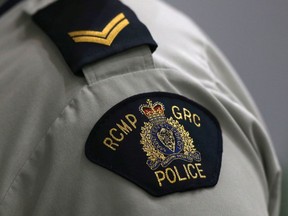Uncertainty abound as Sask. cities decide how to cover RCMP back pay
“These are savings that would have been used for a new park or paving. At the community level there is always something to spend money on.”

content of the article
Saskatchewan communities have limited ability to meet the cost of back payments owed by Mounties who oversee their communities, and some feel left in the dust when it comes to how to handle it.
advertising 2
content of the article
“The FBI just said, ‘Your problem. You pay for it,'” Swift Current Mayor Al Bridal said in an interview Monday. “Now we have to come up with almost another $650,000 or $700,000 to cover the difference.”
Municipalities across the province are having to raise the money for one-off payments to cover back payments for members of the Saskatchewan RCMP, which negotiated a pay rise back to 2017, and some municipalities are planning bills in excess of $1 million.
That could mean higher taxes or less money for other things in those communities, according to Saskatchewan’s Urban Municipalities Association (SUMA), which last week again called for the Feds to foot the bill for the deal since they’re the ones who negotiated it .
advertising 3
content of the article
For Swift Current, the bill for back payments is approximately $1 million, according to SUMA. The city has set aside some money to cover the cost — about $300,000 — according to the mayor.
A property tax increase has already been approved to cover the RCMP’s regular pay rise, he added. The rest of the money could come from a savings account, the mayor said, but taking money out of a rainy day fund means less money to access if or when the next downpour comes.
“These are savings that would have been used for a new park or paving. At the community level, there’s always something to spend money on,” Bridal said.
Municipalities largely rely on property taxes to generate revenue, although some — like Swift Current — also have their own electric utility. Yorkton anticipates a bill of about $1.4 million. North Battleford’s bill comes with an additional $1.2 million for backpayment, which the city manager says will likely be paid with the city’s reserve funding.
advertising 4
content of the article
“You’re going to find it out of money that could be used to build buildings and repair roads and whatever,” city manager Randy Patrick said Monday.
In Yorkton, the City Council put part of the change — about $750,000 — in reserves to cover arrears in wages. When negotiations were under way, municipalities knew they would have to pay more, they just weren’t sure how much more, according to Yorkton Deputy Mayor Darcy Zaharia.
“There aren’t too many revenue streams that municipalities could use to offset that,” Zaharia said. “Whether it’s a direct tax increase or a cut in some other type or service or a combination of those things, I don’t know how else we would try to make up that difference.”
advertising 5
content of the article
Last year, there was no increase in Yorkton’s tax rate due to the COVID-19 pandemic. A one basis point change would make about a $250,000 difference in revenue, Zaharia said. If taxes were raised, the change would be gradual, he hopes.
It’s not just back wages that municipalities have to worry about, as paying civil servants regularly is still an ongoing expense. Municipalities are also feeling the effects of rising fuel and construction costs.
“We were not involved in the negotiations with the RCMP. This has nothing to do with us, but we pay for this service, so they basically said, “Here, go. Figure out how you’re going to pay for it,'” Zaharia said.
The news seems to be coming at us faster and faster. From COVID-19 updates to politics and crime and everything in between, it can be difficult to keep up. With that in mind, the Regina Leader post created a Afternoon headlines Newsletter that can be delivered to your inbox daily to ensure you are up to date with the day’s most important news. Click here to login.
